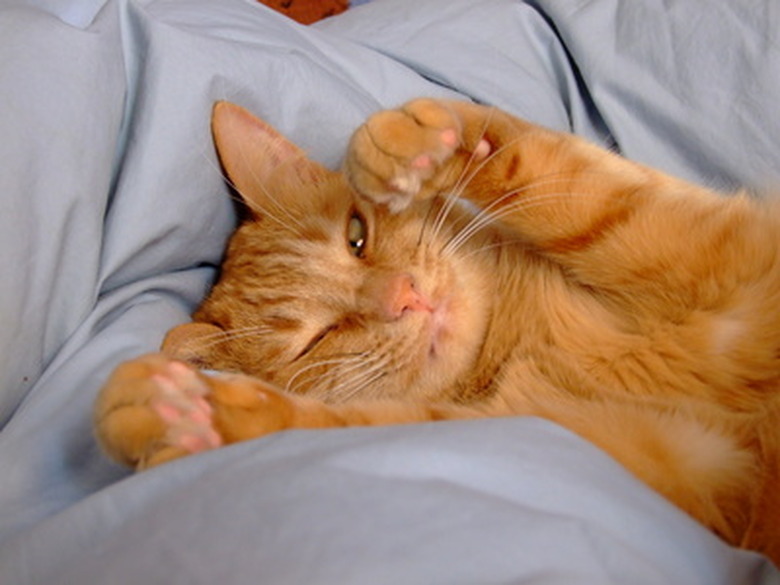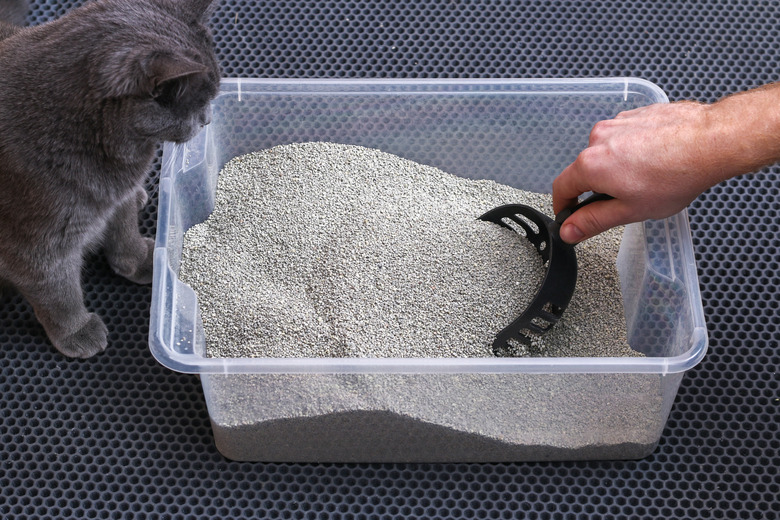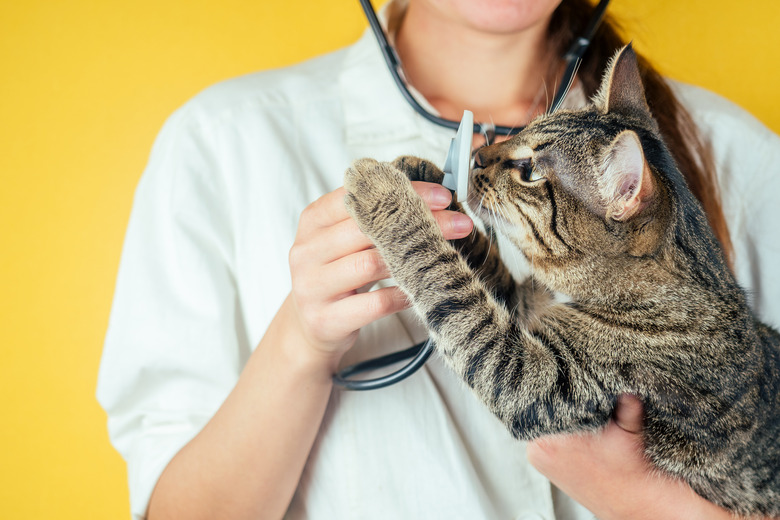How To Diagnose Foamy Cat Urine
Urine problems are quite commonplace in the world of cats. From urinary tract infections (UTI) to urine crystals, some minor cat urine problems are easily diagnosed and treated. From time to time, however, your cat may display symptoms of a more serious urinary problem. One symptom of a potentially severe medical condition in your cat is foamy or frothy urine. If your cat has foamy urine, act immediately, as this could be anything from dehydration to a sign of a urinary tract infection, kidney failure, kidney disease, FIV (feline immunodeficiency virus), or liver problems.
Veterinary care for your cat
Veterinary care for your cat
Regular, routine veterinary care with annual lab work and urinalysis is important to catch common issues as early as possible. Older cats in particular benefit from seeing a veterinarian on a regular basis. Keeping your annual wellness checks also helps to establish baseline levels for your pet that can act as a comparison if your cat ever displays symptoms of illness.
If your cat is displaying signs of illness, be sure to see a veterinarian regarding your cat's condition, as it could be the result of a wide variety of problems that are impossible to diagnose without an experienced professional's help. If your cat's condition worsens before your veterinary visit, call to move up the visit. The veterinarian won't mind, and you may save your cat's life.
Litter box maintenance for foamy cat urine
Litter box maintenance for foamy cat urine
Observe your cat's urinary symptoms. It may be gross, but look at the urine. Make a note of the color, smell, and how foamy it is as well as how often those symptoms are present, whether or not it always smells the same or is the same color, and whether or not your cat is in pain when urinating.
You may have to clean the litter box every day to know exactly how frequently your cat is urinating and how much or how little they are producing. If you suspect a urinary-related illness, a daily litter box check is a first step to checking in on your cat's health.
Cat pee and overall cat health
Cat pee and overall cat health
Examine your cat's other symptoms. Make a note of eating habits, such as the type of cat food they prefer and whether they are eating or avoiding food. Also note whether their overall behavior has changed and whether they are sleeping more or vocalizing excessively. These can be signs of stress or discomfort and can be signals of internal problems, such as chronic kidney disease.
Also keep an eye on coloration, particularly yellowing in the whites of the eyes or tongue. Weight loss may be difficult to notice in an older cat or a long-haired cat, so handle your cat daily to take note of weight changes. Though cats may not show the obvious signs of pain that other animals may display, making note of anything out of the ordinary can help in early diagnosis of problems.
Talking about symptoms at your cat's veterinary appointment
Talking about symptoms at your cat's veterinary appointment
Attend the veterinary appointment. Present the veterinarian with all of the information you've made note of regarding your cat's symptoms and condition. This is the time to mention specific habits, coloration changes, appetite loss, or urinary problems.
Allow your veterinarian to perform diagnostic tests on your cat. Examples of tests for urinary problems include urinalysis, bloodwork, urine culture, urine protein creatine ratio, or serum biochemistry profile. The tests will help determine the exact cause and best course of treatment for the underlying cause of your cat's foamy urine. Your veterinarian will then be able to present you with treatment options.
The bottom line
The bottom line
If you suspect your cat has a urinary problem, your first step is to examine their daily urine levels and condition, which may involve daily litter box cleaning. Take note of any changes in your cat's health by noting weight or appearance, particularly in yellowing of the eyes or tongue. Keeping an annual veterinary wellness check with urinalysis can help catch problems early, and giving accurate information about your cat's behavior to your DVM during any examinations can help diagnose foamy urine as dehydration or something more dire.


